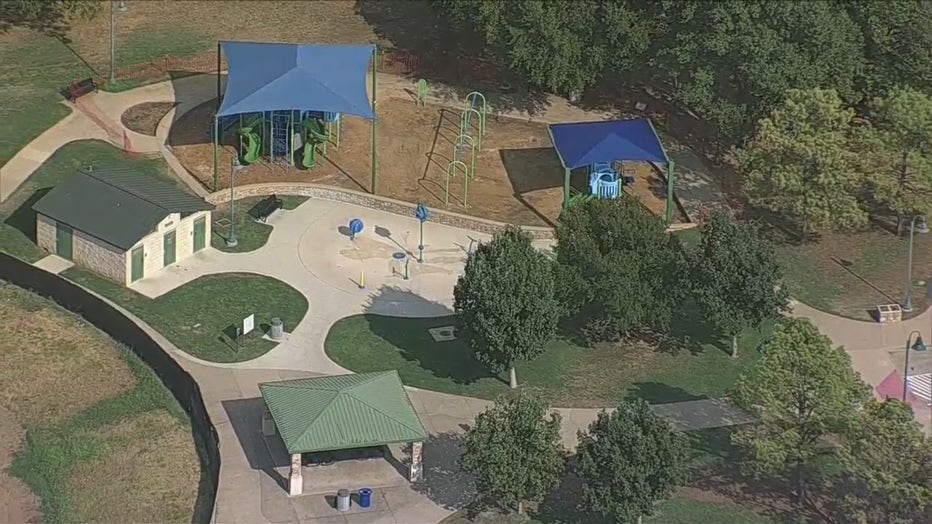All Arlington splash pads, pools closed after possible detection of deadly amoeba
Arlington splash pads closed due to possible amoeba
The City of Arlington is closing all of its splash pads and pools until further notice after possibly detecting a deadly amoeba.
ARLINGTON, Texas - The City of Arlington is closing all of its splash pads and pools until further notice after possibly detecting a deadly amoeba.
The city says the rare Naegleria fowleri amoeba was potentially found in a water sample collected at California Lane Park.
The closures were out of an abundance of caution after a young boy's death in 2021 linked to a brain-eating amoeba.
The water was collected on Aug. 17 as part of a voluntary federal study with the Environmental Protection Agency (EPA).
More tests are being done to confirm the presence of the amoeba.

The City of Arlington says they have not been notified of any illnesses or hospitalizations at any of its facilities.
The city warns that anyone who recently visited California Lane Park should seek medical care if they develop a sudden fever, headache, vomiting or stiff neck.
Arlington partners with the EPA for the voluntary federal study about splash pad safety.
Parks and Recreation Director James Orloski says the EPA notified Arlington on Tuesday that a sample collected on Aug. 17 from the splash pad was presumed positive for a dangerous amoeba.
"This is demonstrative that our process works. Our federal partners helped identify a potential harmful amoeba," said Arlington Mayor Jim Ross. "We don’t know yet if there’s really one there. But everything worked the way it was supposed to."
The first symptoms usually start to appear about five days after infection but can appear sooner.
The Naegleria fowleri amoeba results in a deadly infection in humans. It is the same amoeba connected to the death of 3-year-old Bakari Williams in 2021.
Bakari was infected after visiting Arlington's Don Misenhimer splash pad. The city of Arlington settled a lawsuit with the Williams family following his death.
In 2022, Arlington implemented the Bakari Williams Protocol, which improved chemical testing and sanitation at city facilities along with nearly $650,000 in improvements to its pools and splash pads.
"I’m proud of how Arlington handled it with transparency with holding ourselves accountable," Ross said. "And we’ve taken the steps to ensure that we would never ever, ever put a child in a position like that again."
"Since Bakari’s passing, we’ve put into place all new protocols that we did name after him," Orloski said. "So where the state requirement is one example is one part per million chlorination in a water feature, we go above and beyond that we require two parts per million."
The protocol includes higher chlorination and a UV lighting system.
Brain-eating amoeba scare closes Arlington splash pads
The city of Arlington closed all of its pools and splash pads after the possible detection of a deadly amoeba. The sample was collected at California Lane Park in southwest Arlington. It will be sent off to a lab for more testing.
"We also have a UV system that’s a secondary sanitation system," Orloski said. "Aside from the controllers that check the water quality, we also do manual checks three to four times per day."
Systems include automated water chemistry controllers to tell in real time what the chemical content of the water is. If it dips below regular levels, it can be shut off.
"It really shouldn’t be possible with that amount of chlorination as well as the secondary sanitation of the UV system, it’s highly, highly improbable an organism like this amoeba would be able to survive," Orloski said.
The city says its splash pads have been closed since Tuesday, Aug. 29, and outdoor public pools have been closed since Sunday, Aug. 27. The East indoor pool closed on Wednesday, Aug. 30.
The lab testing of the organism is in Gainesville, Florida, and the timing of it may be impacted by the hurricane. The earliest the testing could come back is this Thursday or Friday.
The CDC says there have been only 29 reported Naegleria fowleri infections in the U.S. between 2013 and 2022.


